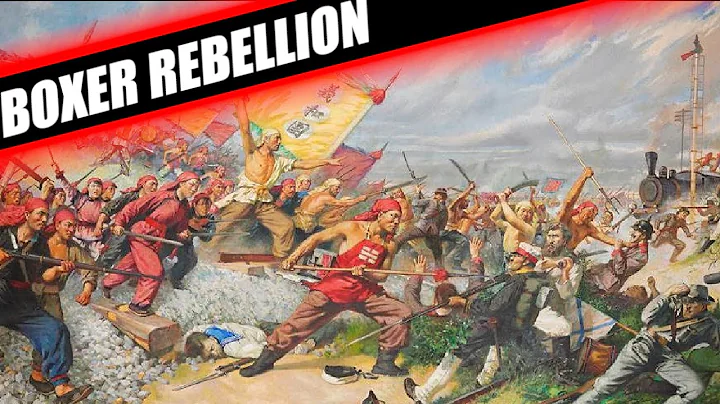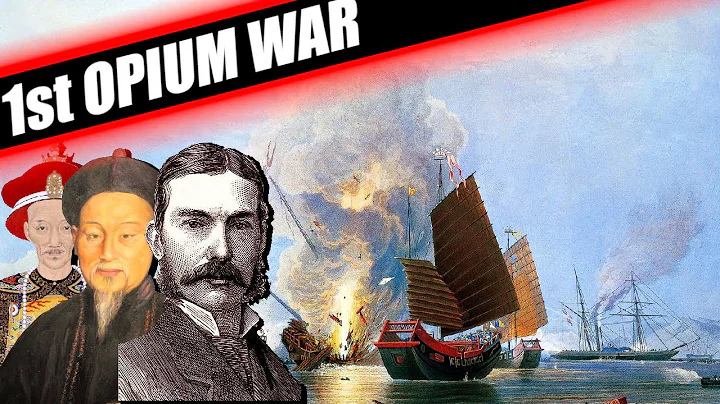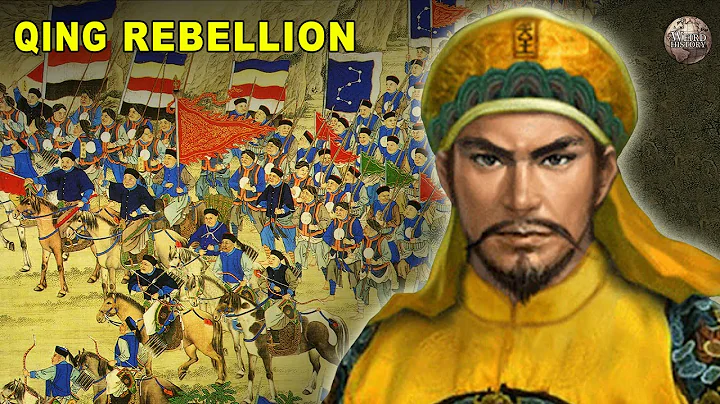In 1851 AD, religious groups led by Hong Xiuquan, Yang Xiuqing, Shi Dakai and others launched an uprising in Jintian Village, Guangxi, and established the Taiping Heavenly Kingdom, which was historically known as the Taiping Heavenly Kingdom movement.
In 1864 AD, the capital of the Taiping Heavenly Kingdom was breached, and the "Tianwang", the apparent supreme leader of the Taiping Heavenly Kingdom, was captured.
In 1872 AD, the last army under the banner of the Taiping Heavenly Kingdom was annihilated, and the Taiping Heavenly Kingdom was destroyed for 20 years.

As the largest peasant uprising in Chinese history, the Taiping Rebellion obviously had a more mass base than the peasant uprisings in previous Chinese history, but it failed.
Therefore, modern people have different opinions on the reasons for the failure of the Taiping Rebellion. Even the history books have few records of this massive uprising, or they dare not record it.
So what is the real reason for the demise of the Taiping Heavenly Kingdom?

Currently, the more mainstream view is that the demise of the Taiping Heavenly Kingdom was affected by many aspects.
The biggest impact was the internal struggle of the Taiping Heavenly Kingdom.
The management of the Taiping Heavenly Kingdom is quite chaotic. The apparent top leader is Hong Xiuquan, the King of Heaven.
But as we said before, the Taiping Heavenly Kingdom was an uprising launched by a religious group in the name of religion, so it had a dual structure of political power and religion.
After having the highest political leader, there was also a highest religious leader within the Taiping Heavenly Kingdom. He was Dong Wang Yang Xiuqing.

At that time, the Taiping Heavenly Kingdom claimed to be the second son of God under the guise of Christianity.
But Yang Xiuqing, who has control of the church, claims to be the human incarnation of God, and often uses the name of God to play tricks of possessing gods.
Once other people in the Taiping Heavenly Kingdom were at odds with Yang Xiuqing, but the other party's level was the same as his own, Yang Xiuqing would pretend to be possessed by God, and would criticize the other person at least, or beat him up at worst. Even Hong Xiu, the king of heaven, would be punished. Beat him.

Although as the leader of the Taiping Heavenly Kingdom, Hong Xiuquan himself did not believe in religion, so he naturally knew that Yang Xiuqing was pretending to be a god.
The overlapping organizational structure of the Taiping Heavenly Kingdom’s political power and religious power made it impossible for him to expose Yang Xiuqing.
In addition, after the Taiping Army captured Nanjing, Yang Xiuqing's military strength increased significantly, directly threatening the rule of the Heavenly King Hong Xiuquan.
When things have developed to this point, it would be strange for the Taiping Heavenly Kingdom not to be divided.

So in 1856 AD, the Tianjing Incident broke out in the Taiping Heavenly Kingdom, in which the Eastern King Yang Xiuqing was killed, the Northern King Wei Changhui was executed, and Wing King Shi Dakai led his troops away.
The Taiping Heavenly Kingdom had six kings when it was founded. Among them, except for Xiwang Xiao Chaogui and Nan Wang Feng Yunshan who had already died in battle, this time the Tianjing Incident directly caused the death of the remaining four main leaders.
In the end, only Hong Xiuquan, the king of the Taiping Heavenly Kingdom, was left.

So after this incident, the strength of the Taiping Heavenly Kingdom was greatly weakened. Not to mention that
has been weakened, at least half of it has been weakened.
Coupled with the problems in the organizational structure of the Taiping Heavenly Kingdom, the organizational power basically did not develop after this incident.
Hong Xiuquan also died of illness after that. All the capable and visionary leaders in the Taiping Heavenly Kingdom died. Failure is inevitable.

In addition to internal divisions, the Taiping Heavenly Kingdom's strategic missteps were also a major reason.
Two major forces are confronting each other. When both sides are not sure that they can defeat the opponent at once, it is normal to find ways to strengthen their own strength and weaken the opponent's strength.
When it comes to the peasant uprising, it is natural to capture more land to absorb soldiers and strengthen its own power. When its own strength is strong enough, it will then attack the core areas of the central dynasty, including the capital.

But the Taiping Heavenly Kingdom did not do this. After they captured Nanjing and founded the country, they directly planned the Northern Expedition to attack Beijing, the capital of the Qing Dynasty.
You must know that at its peak, the land controlled by the Taiping Heavenly Kingdom was only in the Jiangnan area, accounting for about 3% of the territory of the Qing Dynasty.
Using 3% of the land to attack a dynasty that was not yet completely on the verge of death, the Taiping Heavenly Kingdom's strategy can be said to be extremely irrational.

In addition to the above two reasons, some people believe that the failure of the Taiping Rebellion was caused by the joint strangulation of Chinese feudal forces and external forces.
Although the Taiping Heavenly Kingdom seems to be related to Christianity, it has no interests entangled with Western forces.
Even after the founding of the People's Republic of China, the Taiping Heavenly Kingdom publicly declared that it would not recognize a series of unequal treaties signed by the West and the Qing Dynasty.
Therefore, Western forces are more interested in supporting the Qing Dynasty than this group of people who "believe in God".

Therefore, the Taiping Heavenly Kingdom encountered a situation that no previous peasant uprising army in China had ever encountered - a joint strangulation between China and foreign countries.
In particular, Britain, which had extensive colonial interests in China, directly sent troops to assist the Qing army on many occasions, making the Taiping Army's situation even more unfavorable.
Of course, if the Taiping Heavenly Kingdom itself is good enough, this kind of joint strangulation by China and foreign countries will not have a direct impact.
However, due to the internal divisions of the Taiping Heavenly Kingdom and its strategic mistakes, the joint strangulation between China and foreign countries played a greater role.





















